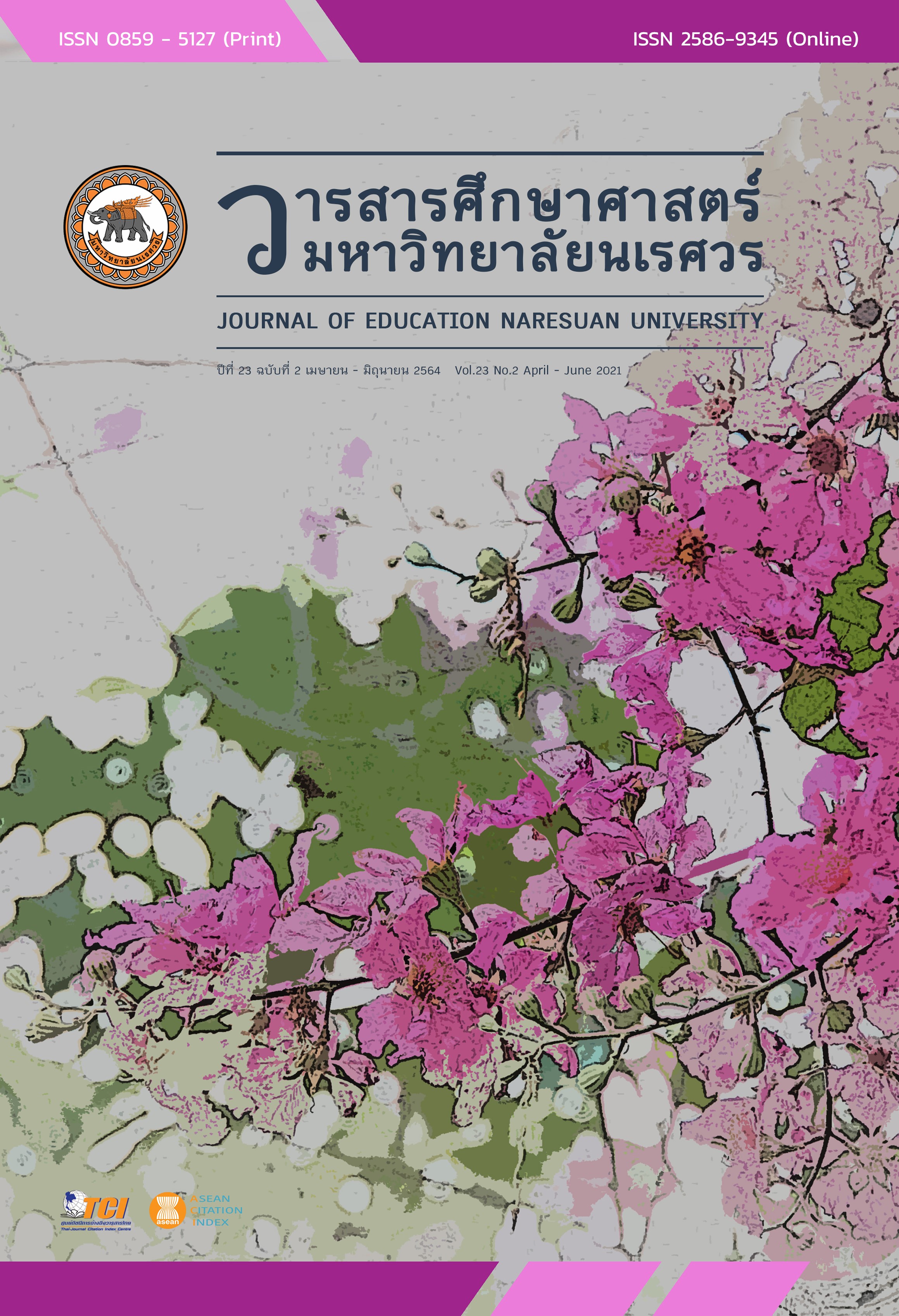THE EFFECTIVENESS OF PARTICIPATORY LEARNING TO PROMOTE OCCUPATIONAL COMPETENCY FOR SECONDARY SCHOOL STUDENTS ผลการใช้การจัดการเรียนรู้แบบมีส่วนร่วมเพื่อส่งเสริมสมรรถนะการทำงานและอาชีพสำหรับนักเรียนระดับมัธยมศึกษา
Main Article Content
Abstract
The purpose of this research was to study the effectiveness of Participatory Learning to promote occupational competency for secondary school students. Participants were 39 grade 7-9 students at Wangnumkoosuksa School by purposive sampling from students who enrolled in Occupational club. Research instruments were occupational competency evaluated form and the satisfaction toward participatory learning questionnaire. The statistics used to analyze the data were mean (), standard deviation (S.D.) and t – test (dependent). The research findings were as follows; 1) students who studied through participatory learning had a higher score of occupational competency than those of their pre-test at the .01 level of significance, and 2) the students had a highest level of satisfaction towards Participatory Learning (
= 4.53, S.D. = 0.50).
Article Details

This work is licensed under a Creative Commons Attribution-NonCommercial-NoDerivatives 4.0 International License.
The owner of the article does not copy or violate any of its copyright. If any copyright infringement occurs or prosecution, in any case, the Editorial Board is not involved in all the rights to the owner of the article to be performed.
References
Buaonte, R. (2009). Research and educational innovation development. Bangkok: Kamsamai. [in Thai]
Institute of Education for Sustainable Development. (2001). Participatory learning. Chiang Mai: BS Printing. [in Thai]
Kolb, D. A., & Fry, R. (1975). Toward an applied theory of experiential learning. In C. Cooper (Ed.), Studies of group process (pp. 33–57). New York: Wiley.
Office of the Education Council. (2017). The national scheme of education B.E. 2560 - 2579. Bangkok: Prikwarn Graphic. [in Thai]
Office of the National Economic and Social Development Board. (2017). The twelfth national economic and social development plan (2017-2021). Bangkok: Office of the Prime Minister. [in Thai]
Onthanee, A. (2019). A development of instructional model based on contemplative education to enhance adversity quotient for student teachers. Journal of Education Naresuan University, 2(13), 326-341. [in Thai]
Osborn, A. F. (1966). The creative education movement. Buffalo, NY: Creative Education Foundation.
Parsons, F. (1909). Choosing a vocation. London: Gay & Hancock.
Pichaikamol, S. (2006). The effect of participatory learning on sex education and life skills of grade 8 students at Nonsiwittaya School (Master thesis). Bangkok: Chandrakasem Rajabhat University. [in Thai]
Potha, R. (2018). Handbook of vocational readiness test. Maehongson: Maehongson Provincial Employment Office.
Robbins, S. P. & Coulter, M. K. (2005). Management. California: Pearson Prentice Hall.
Sansuwan, B. (2016). Development of participatory learning to enhance life skills of grade 7 students Nongphuethepnimit School, Sakonnakhon Education Service Area 1 (Master thesis). Sakonnakhon: Sakonnakhon Rajabhat University. [in Thai]
Srisa-ard, B. (2002). Basic research (7th Ed.). Bangkok: Suviriyasarn. [in Thai]
Suwannapak, T. (2007). Participatory learning activity to enhance life skill for grade 2 students (Master thesis). Bangkok: Kasetsart University. [in Thai]
Taweerat, P. (2000). Research methodology in behavior and social science (7th Ed.). Bangkok: Srinakharinwirot University. [in Thai]


